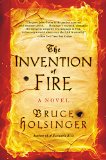Summary | Excerpt | Reviews | Beyond the Book | Readalikes | Genres & Themes | Author Bio

We held each other at arm's length. I searched his eyes. "You're in London." A statement, also a question.
"I am not in London, nor anywhere near the place." He went to the door, peered out. He turned back to me. "At least as far as Philippa is concerned. If you see her you never saw me, yes?"
"Fine, fine," I said, amused, though also a bit melancholy about Chaucer's continuing estrangement from a woman I admired so deeply. "You're packing up then?"
"I must surrender the apartment and Aldgate altogether." He said it with a careless air that I could tell was put on. "You haven't heard? The common council wants me out. It seems that Richard Forster will take up residence here in a few weeks. Everything must go, to be sold or carted out to Greenwich." A village several miles from the city, and site of Chaucer's new residence while performing his duties as justice of the peace in Kent. "Books, plate, books, furniture, books—oh, and also the books."
Chaucer's small apartment above Aldgate had once been stuffed with volumes. The four locked trunks along the far wall must have held dozens of manuscripts between them. It struck me how many times I had visited the Aldgate house over the years, for poetical exchanges reaching into the night.
He invited me to sit. I declined, with a hint at the day's business.
"An errand for Strode, then?" he said, wanting to know more, though unwilling to ask directly. "A fool's errand, I would call it. Aldgate seemed as good a place as any to begin." I gave him the bones of it, as the discovery of corpses in the privy was being bandied through the streets already. I kept quiet about the victims' peculiar means of death, nor did I hint at the mayor's apparent attempt to scuttle an inquiry. Chaucer had worked under Brembre in the customs office for several years, and the two remained close. "So today I troll the gates," I said, "hoping to scare up anything I can find about these men."
His reaction was muted. "A dozen a day die in this city. Women, the elderly, children. Mass graves surround us on every side. What makes these unnamed men worthy of your time, John?"
The question surprised me. "Sixteen at once, thrown in the Walbrook? Curiosity, I suppose. And a fair measure of fear. No mayor wants to give death free rein in his city. The crown will use any excuse to tighten its choke hold on London. This is just the sort of thing to attract the worst kind of scrutiny from the king's men."
"Now you sound like Strode himself," said Chaucer with his curling smile.
"The freer the city, the looser its purse."
Chaucer moved to an east-facing window and glanced at the turret clock on St. Botolph. "I'm due at Westminster shortly, you know, otherwise I would accompany you. I would welcome a break from all this." He looked around, gesturing to his crates and trunks. "But let me hail Bagnall up."
"Who?"
Chaucer walked to his door. "Matthew Bagnall," he said over his shoulder. "The warden of the gate. A man who knows more about the doings in and around Aldgate than all our ward-rats put together. I'll get him up here." He stepped out to the rickety landing and called down to the foregate yard. "You there! Is Bagnall about?"
A faint reply floated up from street level.
"Well, send him up, will you? Master Chaucer has a question for him!"
He turned back and flattened himself against the wall. The servants slid around us bearing a large chest between them, which jostled and bumped along the railings as they descended the street-side stairs. When they were gone he looked at me, gestured at his eyes.
"The same?"
"No worse, at least," I lied, blinking away a spot. "Some days I scarcely notice, others . . ."
"Ah," he said, his hands clasped. He tilted his head. "You know, John, there may be remedies other than resignation and despair."
Excerpted from The Invention of Fire by Bruce Holsinger. Copyright © 2015 by Bruce Holsinger. Excerpted by permission of William Morrow. All rights reserved. No part of this excerpt may be reproduced or reprinted without permission in writing from the publisher.




Experience is not what happens to you; it's what you do with what happens to you
Click Here to find out who said this, as well as discovering other famous literary quotes!
Your guide toexceptional books
BookBrowse seeks out and recommends the best in contemporary fiction and nonfiction—books that not only engage and entertain but also deepen our understanding of ourselves and the world around us.